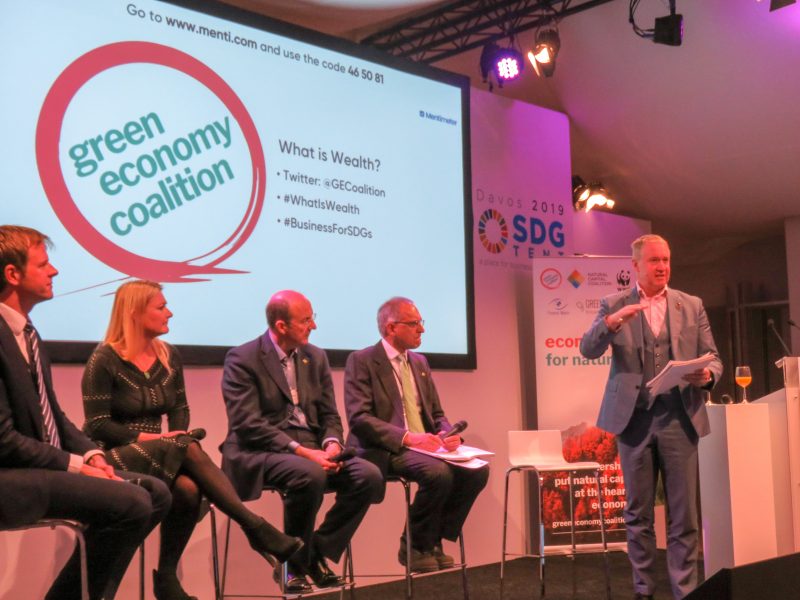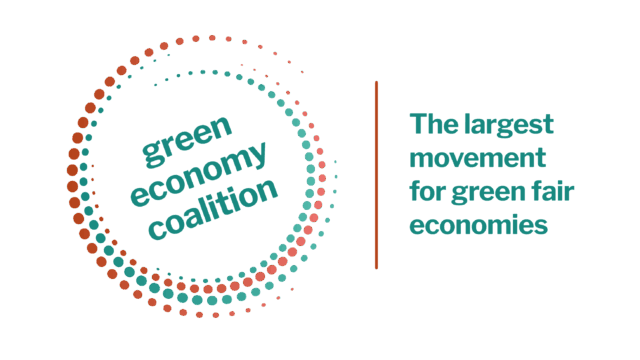Lessons from a gardener: Sowing seeds of change the GEC Way
As we say goodbye to Oliver Greenfield, our interim convenor reflects on the legacy he leaves behind and the strong roots he cultivated

Our convenor Oliver Greenfield, who has moved on to pastures new after 14 years leading the charge as the head of the GEC, is a keen but unconventional gardener. One of his proudest achievements is the fully-realized nihon teien he built in his back yard – a traditional Japanese garden complete with karp-filled pond, wooden bridge, manicured gravel and meticulously shaped bonsai.
Over the years, he nurtured GEC with the care and dedication of a master gardener, cultivating a thriving ecosystem of innovation, collaboration, and growth. The GEC has grown and thrived under his stewardship, putting down strong roots and becoming the flourishing, some might say rhizomatic,1 network it is today. I hope he will appreciate this tortuous gardening analogy – everyone else, please bear with me!
Planting the seeds of green economy
When Oliver came to the GEC fourteen years ago, it was barely more than five NGOs exploring an idea: can a network of organisations figure out a way to translate the urgent policy demands of biodiversity and climate action into the hard-nosed language of economics favoured by Treasury officials and investors?
Today, the GEC is a truly global, multi-disciplinary network, comprising members from Peru to Perth and uniting citizen groups, business leaders, and international policy experts. More importantly, that founding question has been answered: the economic case for sustainability action has been made and won.
“ This unusual approach was quintessential Oliver – who always insists that the movement is more important than any one organisation within it, even his own. Inspired by his leadership, this principle will continue to be a guiding light for our work.”
The GEC’s mission is almost absurdly ambitious, something that Oliver always reminded us of: changing the fundamentals of the global economy to protect people, planet and nature, all within a generation. But thanks to Oliver’s green thumb, the GEC has played a major role in establishing what a just transformation looks like, and how it can be best achieved.
From the very beginning the GEC has invested in ideas, planting the seeds of transformational yet credible ideas that can blossom into whole new policy approaches. Concepts like eco-social contracts, natural capital and triple dividend policies; defining and shaping what a green economy is; measuring what matters beyond GDP, articulating nature positive economies, insisting on the centrality of inclusion to transitions and more – the GEC has and will continue to work on what’s important as defined by our members and partners and what is transformative.
Movement generosity
The GEC has been its most impactful when it has focused on its purpose rather than its own needs, acting to tend the green economy landscape rather than growing its own footprint. By intentionally tending the soil so that other people, groups and organisations can flourish, the GEC has supported the growth of the wider green economy movement, especially in the majority world.
This relatively unusual approach was quintessential Oliver – who always insists that the movement is more important than any one organisation within it, even his own. Inspired by his leadership, this principle will continue to be a guiding light for our work.
The age of technocrats is over
“It’s all about the team” Oliver would tell us - and partnerships and collaboration are in the DNA of the organisation. We will never doubt that nothing more than a group of committed individuals will change the world.

GEC’s signature systems approach, evolved over the past fourteen years, is to combine rigorous research and policy analysis together with a narrative-first communications strategy, all growing out of the fertile soil of a strong and diverse network that shapes our actions and informs our approach. GEC has remained resilient, adaptive and flexible by building on these principles, and we will continue to do so as we transition to the next phase of the Coalition.
Oliver, thank you for leaving us with a thriving coalition that is stronger and more beautiful than ever. We promise to continue tending this garden with the same care and commitment that has nurtured it till now, and the Green Economy Coalition will continue to grow, flourish, and inspire.
With deepest appreciation,
- Jean and the Green Economy Coalition Secretariat
Footnotes
Rhizome = the horizontal underground plant stem that produces the shoots and roots of a new plant. Obviously


